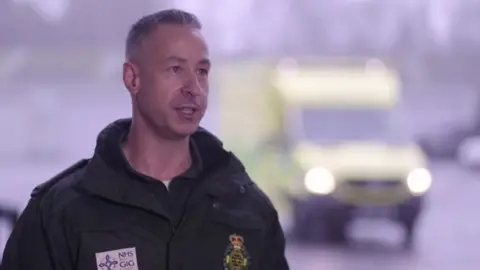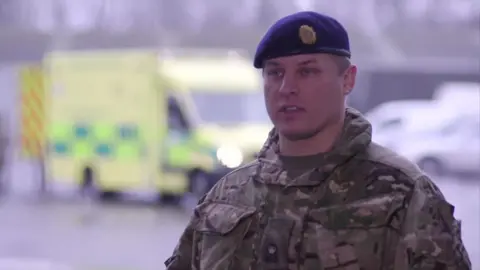Covid: Army begins assisting Welsh Ambulance Service
The British Army has stepped in to help paramedics across Wales after an "extraordinary" request from medical chiefs.
About 90 Royal Logistic Corps and the Royal Army Medical Corps soldiers have been deployed to help deal with the growing pressures of Covid-19.
The Welsh Ambulance Service's director of operations, Lee Brooks, said he had "never known a period like now".
It will be the second time the Army has helped since the pandemic began.
During the first wave, the military helped the Welsh NHS by distributing PPE, and building a temporary hospital in Cardiff.
They will also now help roll out the delivery of the vaccine.
But their support for the Welsh Ambulance Service - which forms part of the Military Aid to the Civil Authorities (Maca) arrangement - is unprecedented.
"The demand is such that at the beginning of December we had to declare a critical incident in terms of responding to the situation we find ourselves in," said Mr Brooks.

The service was in the "extremely rare" situation of being at "status four", the highest level of organisational status, he explained.
Problems the service faced were "three-fold" in that more staff were absent, "flow" through hospitals was poor and there is increased demand due to rising Covid-19 cases, Mr Brooks added.
"It is extraordinary to call on military support. It's not a decision any of us take lightly," he continued.
"I have been in the emergency services for nearly 20 years now and I have never known a period like now."

Maj Dan Cornwell, officer commanding of the Welsh Ambulance Service Drivers Support Force, said "the Army is there to protect the community and protect the UK as a whole".
He added: "That may involve operations in the UK... and actually that's where we feel most at home."
Mr Brooks and Maj Cornwell said the arrangement would remain in place for as long as is needed.
